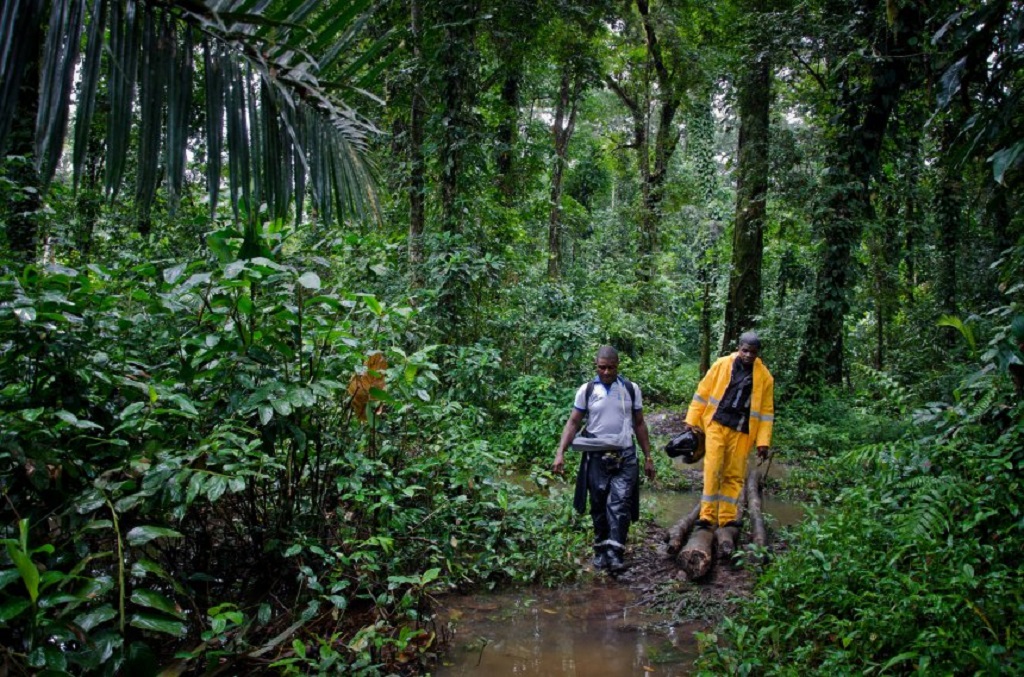This blog originally appeared on the Health System Global website.
Health systems research has been fundamental to Liberia’s efforts to revise its community health program and policy in recent years. Such endeavors to strengthen its national health system means Liberia is a step closer to Universal Health Coverage (UHC).

Background
In 2011, the Government of Liberia (GOL), launched the Essential Package of Health Services (EPHS) as part of the 10-year National Health and Social Welfare Policy and Plan. The EPHS, based on Primary Health Care (PHC) principles, recognized Community Health Systems (CHS) as the principle means for PHC delivery to the population. Within three years of implementation, the EPHS yielded some promising results with a tangible impact on child mortality – Liberia met Millennium Development Goal 4.
Community Health Systems and EPHS tested for resilience
Despite these accomplishments, the Ebola Virus Disease (EVD) outbreak of 2014-2015 weakened Liberia’s health system, with nearly 400 EVD infections among health workers. Millions were left without access to services as health facilities closed and community distrust of the health system mounted. This was marked by a 61% decline in public sector outpatient visits. In response, the Ministry of Health (MOH) developed an Investment Plan for Building a Resilient Health System to effectively deliver services and manage similar shocks in the future. The Investment Plan aimed to: restore services post-EVD; provide health security for the people of Liberia by reducing risks posed by epidemics and other health threats; and accelerate progress towards UHC by improving access to safe and quality health services.
Post-Ebola recovery efforts
Lessons learned from the EVD outbreak included “the need for strong social capital; engagement of communities in the planning and delivery of health services; and integration of risk communication and social mobilization into health systems strengthening.” With these lessons in mind the Investment Plan called for the creation of an “enabling environment that restores trust in the health authorities’ ability to provide services through community engagement in service delivery and utilization; improved leadership; governance and accountability at all levels” as one of its three objectives. To accomplish this objective, prioritized investments included to “develop an incentivized community health workforce to improve community-based service delivery that will provide preventive and curative health services to the most under-served communities, rebuild trust in the health system, enhance linkages to health facility services and create social stability and economic impact in vulnerable communities.”
Revising the Community Health Policy
Recognizing that community health workers alone do not constitute a strong CHS, the existing Community Health Policy was updated in order to provide an overarching policy framework for building a resilient CHS ready to respond to future shocks. With support from development partners (including Unicef, USAID and Last Mile Health), the Community Health Services Division of Liberia’s MOH led a policy revision process guided by a health policy and systems research (HPSR) approach, mindful of critical systemic issues that had enabled the near collapse of the health system during the EVD epidemic.
Methods
A mixed-methods approach was used to review the community health program in Liberia as a prelude to the policy change. A qualitative study was conducted to understand stakeholders’ perceptions of community health system strengthening. The sample included stakeholders involved in the Ministry’s community health program including program managers, policy makers, and healthcare workers drawn from the MOH’s Planning, Community Health Services, and Health Promotion Divisions. Additionally, stakeholders from County Health Teams and beneficiaries from five Counties representing each of Liberia’s five health regions were sampled. Also, the MOH’s Community Health technical working group conducted a bottleneck analysis, using the WHO Health Systems Building Blocks framework, to understand the factors hampering implementation and scale-up of community health interventions. A seventh building block, community ownership and partnership, was included in response to the recommendations of the Ouagadougou declaration on PHC.
Lessons Learned
Results from the analysis and study informed recent community health policy and programmatic shifts. It facilitated evidence-based decision-making allowing for the design of a policy that addressed the requisite components for institutionalizing an integrated, equitable, and potentially sustainable community-based program including the introduction of a paid cadre of community health assistants (CHAs). Additional lessons include the importance of:
-
ensuring government leadership and ownership for program sustainability,
-
examining health programs from a systems perspective, rather than solitary program components
-
establishing a coordination mechanism for collective impact that leverages partnerships to drive policy change
-
identifying the community as a key resource for improved engagement.
Implications for UHC
Since 2016, the MOH has trained more than 2000 CHAs (Internal Ministry of Health Training Dashboard), serving an estimated one million Liberians who previously had limited access to care, facilitating Liberia’s progress towards UHC. Communities serving as key partners in health and community-based systems will continue to play an even bigger role in achieving UHC. Health systems research and analysis in Liberia can highlight systemic issues which may otherwise be missed when focusing on single health program areas. This positions policy makers and partners to develop comprehensive recommendations for strengthening national health systems.
* The contents are the responsibility of the authors and do not necessarily reflect the views of USAID or the United States Government
